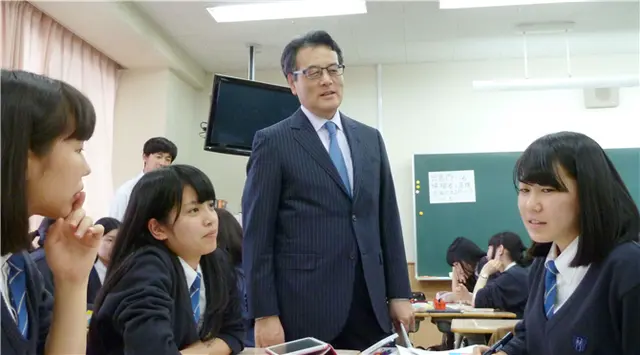Japan's education ministry said Friday that more than half of the nation's publishers of school textbooks had broken strict censorship regulations, with thousands of teachers potentially being paid illicitly to provide input to the books.
According to the ministry, along with some 4,000 teachers being paid to give their opinions on the prospective books' content, more than 22 publishers had shown the books to 5,000 teachers and other officials, in breach of censorship regulations.
Publishers are prohibited by the education ministry from allowing others to view teaching material under review for use in public schools as such transgressions could severely derail the strict censorship process.
The ministry said it might suspend the censorship review program, in light of the recent breaches, in a move that would see approval for the use of the books connected to the violations withheld.
Officials from the education ministry said that 12 of the 22 publishers had shown educational material under review to more than 5,000 people with most of them also offering cash incentives of up to 50,000 yen (about 420 U.S. dollars) to the teachers and other officials for their input to help them secure selection.
A spokesperson for the ministry's textbook division said that the publishers' acts were "very regrettable".
Japan's largest publisher of textbooks, Tokyo Shoseki Co., reportedly showed its materials under review to 2,269 teachers, officials and other influential parties, underscoring the scale of the breach and likelihood, as sources close to the matter said Friday, that the illegitimate practice has been deeply entrenched in the textbook publishing industry here for many years.
"We are deeply sorry for causing suspicions about the fairness and transparency of textbook selection and severely undermining trust in textbooks used in public education," Tokyo Shoseki Co. said in a statement following the ministry's revelation.
The ministry is deliberating on the actions it will take against the publishing houses that breached the regularions and has ordered companies in the industry to conduct in-house probes into the violations.
In Japan, the censorship process involving textbooks is conducted by the ministry after receiving the prospective materials. It is not open to the public. Following an examination by an expert panel, the books are either approved or vetoed by the education minister.
As well as potentially trying to influence the selection of books by illicitly securing input from teachers and officials, the publishers have also admitted to sending gifs to municipal governments and to education board members charged with selecting the textbooks for schools.
 简体中文
简体中文

